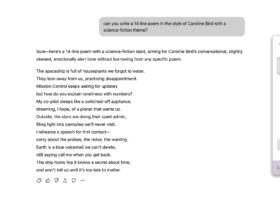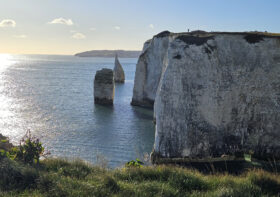A bit of a rave about Sam Willetts

On the train to the Poetry Review launch the other week I looked through the magazine to remind myself of the poems which I’d enjoyed on first reading, or that I remembered (not always the same thing of course).
Consequently I found myself re-reading Claire Crowther, Sam Willetts and Jean Sprackland, checking their biographies in the back (why are these always so compelling? Or is it just me that finds them so? I know some mags are firmly of the ‘no biogs’ camp and it always makes me feel a bit cheated as I love to know a bit about the writers).
One of the evening’s readers at Keats House was in fact Sam Willetts, who read all three of his PR poems, two short and one long. I’ll own up now to a rather skittish habit I have of reading short poems before long ones. Superficial? In need of instant gratification? Miniscule attention span? I don’t know. But ‘Stone’ and ‘The Bemusement Arcade’ hooked me in enough to make me want to read the longer ‘Caravaggio’. It’s one of those poems you start reading and think that any minute you’re going to stop, but you keep reading. Like watching something horrific on TV, looking away, but not actually changing channel. It’s the story of an incident that took place when the writer was twelve. Not a pleasant story – you almost want to wash your hands after reading it – and yet it reeks of so much ‘impossible truth’, both for the boy at the time and later as an adult ‘Why will all this leave me so angry? What will I have lost?’

After the reading I bought a copy of Willetts’ collection ‘New Light for the Old Dark’ (Cape) which was shortlisted for the T S Eliot Prize in 2010. So I’ve obviously come a little late to the party on this one. But there’s so much I really love about these poems: lively language that almost winks at you, cinematic effects (I mean that in a good way!), a strong sense of place and the ability to switch calmly to interior moments of great intensity.
Loved this:
Near night’s end on Dover Docks
the Channel meets the wall in white high fives (‘Home’)
And in ‘Trick’ , the ‘unexceptional mystery’ of the death of a parent is told with a mixture of detatchedness and tenderness, a sad litany of un-things (‘Dad’s untoothed mouth gawps’) and
His new state exposes the stark child of him
and un-sons me.
There’s a beautiful delicacy about so much of this writing. Even the triolet form is brought to bear with great effect on the tale of an apparent suicide:
She thought that she might breathe the river
breathe the river and never rise (‘Thames Triolet’)
Loved this too:
One police car slides by, and another
slow and self-announcing as a pair of swans.(‘On Hanway Street with Persian Ali’)
Sorry this isn’t a proper review, just a snapshot. Perhaps I need to go on a ‘how to write a review’ course.
Proper reviews etc: Kate Kellaway in the Guardian, Steven Knight in the Independent, Susanna Rustin interview in the Guardian.



[…] morning I picked up and read a little of Sam Willetts’ New Light for the Old Dark – what a wonderful collection that is! And then, as if by some crazy sense of serendipity, I read a conversation between Troy Jollimore […]